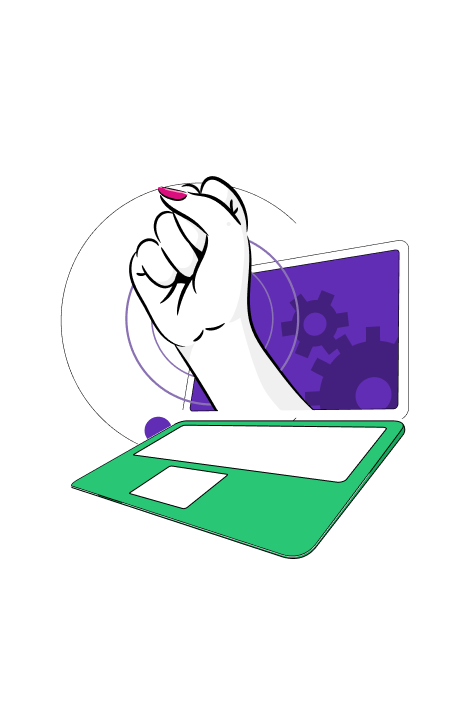
Building resilience: Coping strategies for online harassment
Online harassment can take many forms, from cyberbullying to online stalking. It’s important for those who are dealing with online harassment to build resilience and find ways of coping with the situation. Resilience is the ability to bounce back from difficult times, and it involves a variety of skills such as self-awareness, problem-solving, communication, and emotional regulation.
Building resilience can be a difficult process, but there are many strategies that can help you cope with online harassment. For example, developing an action plan that outlines how to respond to cyberbullying or setting boundaries with people who are engaging in online harassment can be beneficial. Let’s take a deep dive into how online harassment impacts one’s overall mental well-being.
Types of online harassment and their impact on emotional well-being
Online harassment is unfortunately a reality for many on the internet today. It can take many forms and range from mild teasing to online bullying, stalking, abuse, and more. The type of harassment experienced can have a profound impact on the emotional well-being of someone who is targeted.
- Teasing or name-calling may seem harmless but it can still be hurtful and damaging to someone’s self-esteem. It can lead to feelings of sadness, anger, depression, or even fear.
- Online bullying is a more serious form of harassment that typically involves repeated attacks on an individual’s character or reputation. This type of harassment can cause deep emotional pain and distress and may lead to social isolation, anxiety, depression, and even suicidal thoughts.
- Stalking is another type of online harassment that can be emotionally devastating. It involves monitoring a person’s activity online and often includes threats or fear-mongering. This can lead to feelings of fear and insecurity which in turn can impact the way a person interacts with others on the internet.
- Abuse is also a grave form of online harassment that can be very damaging to a person’s mental health. Abuse often involves physical or verbal threats, as well as humiliation, intimidation, and manipulation. It can leave victims feeling anxious and scared and may lead to more serious issues such as depression or post-traumatic stress disorder (PTSD).
The impact of online harassment on mental health and well-being
Online harassment and bullying can have a profound effect on one’s mental health and well-being. Research has shown that individuals who experience online harassment are more likely to suffer from symptoms of depression, anxiety, stress, and other mental health issues. Furthermore, they may be at increased risk for suicide attempts.
In addition to the emotional toll online harassment can take, it can also lead to a range of physical health problems. Constant stress and anxiety can cause physical symptoms such as headaches, digestive issues, fatigue, and poor sleep patterns. Long-term exposure to this type of cyberbullying can also increase the risk for chronic conditions such as high blood pressure or heart disease.
Tips and strategies for building resilience in the face of online harassment
It is important to be mindful of your mental health and well-being when facing online harassment. Here are some strategies for building resilience against online harassment:
- Reach out for support: Make sure you have a strong support system in place with people you trust that you can talk to openly and honestly.
- Focus on what is within your control: Online harassment can be overwhelming, but try to stay focused on the things that are within your control. Setting boundaries for yourself and the types of interactions you are willing to engage in can help you stay grounded.
- Take breaks from technology: Taking a break from your devices or social media gives you an opportunity to step back and reset. Do it if you feel it’s needed.
- Practice self-care: Self-care is an important part of building resilience. Make sure you take the time for activities that make you feel good about yourself. This could be anything from reading, listening to music, going for a walk, or having a conversation with a friend.
The role of therapy and counseling
Therapy and counseling are considered to be beneficial resources for those who have experienced online harassment. Therapy offers a safe space to talk about the experience, process emotions, and learn effective coping techniques. Similarly, counseling can provide one-on-one guidance from a professional therapist to create an individualized treatment plan tailored to the specific needs of the person.
Ultimately, therapy and counseling sessions can help people dealing with online harassment to regain confidence and self-esteem, while promoting emotional well-being.
Conclusion
It’s important to note that resilience is an important tool in dealing with online harassment. Learning to recognize the signs of cyberbullying, understanding how to minimize its risk, and building emotional resilience when faced with it are all essential steps in protecting oneself online.